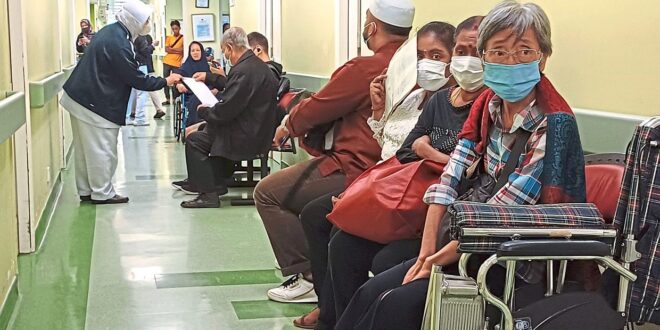PETALING JAYA: The Health Ministry may be given more clout in conducting and recognising specialist training programmes to deal with the parallel pathway conflict, say sources.
This could be done through amendments to the Medical Act 1971.
“The Health Ministry is in charge of about 75% of patients and beds in the country, so it is only right if it has certain powers over it,” said a ministry source.
The source added that there is a possibility that the Health Minister would be given “clearer powers” to veto Malaysian Medical Council (MMC) decisions if there is any conflict, and to enable certain checks and balances on the council.
“There was also talk about reforming the MMC in terms of tenure, voting, elections and representation, but that has not been confirmed,” said the source.
ALSO READ: Healthcare workers stretched to the limit and very tired
The proposals are being fine-tuned as feedback is being sought from other agencies including the Attorney General’s Chambers.
“Some weaknesses were identified in existing Master’s programmes in a study,” said the source.
The source believed that universities may not be too keen on the parallel pathway programme as it may affect their own Master’s programmes.
Meanwhile, another source claimed the fiasco related to the recognition of the Fellowship of the Royal College of Surgeons of Edinburgh in the Cardiothoracic Surgery (RCSEd) programme came about due to an oversight in the past as the programme was not recognised outside the United Kingdom.
On May 27, Health Minister Datuk Seri Dr Dzulkefly Ahmad said the Medical Act 1971 will be amended to resolve issues related to the parallel pathway programme.
ALSO READ: ‘It’s about national interest’
He also said the Cabinet paper on the programme would be presented for approval at the Cabinet meeting on June 5.
In March, he told the Dewan Rakyat that there were only 14 cardiothoracic surgeons working under his ministry.
The Star in March had reported that the shortage of cardiothoracic surgeons has left some 1,500 heart and lung disease patients in government hospitals in dire straits.
Some of the above cardio- thoracic surgeons will also be retiring soon.
Malaysian graduates who had been sent by the government to study cardiothoracic surgery at the Royal College of Surgeons of Edinburgh are unable to practise in Malaysia as their qualifications are not accepted by the MMC. In response, the MMC said it had never recognised the RCSEd programme.
ALSO READ: Only 5% of public healthcare facilities have adequate manpower, says MMA
Four of these graduates have already sued the MMC for refusing to register them with the National Specialist Register (NSR).
This was the third known lawsuit against the MMC’s rejection of NSR specialist registration applications.
The other two lawsuits were filed by a neurosurgeon with FRCS Ireland in neurosurgery and by six pathology graduates in medical genetics from Universiti Sains Malaysia (USM).
On May 29, Higher Education Minister Datuk Seri Dr Zambry Abdul Kadir said that there are two issues to be resolved, namely the recognition of the cardiothoracic parallel pathway programme and the NSR registration of doctors who have completed the programme.
The amendments to the Medical Act are expected to be tabled in the Dewan Rakyat in the upcoming meeting this month.
 BeritaKini.biz Berita Viral Terkini di Malaysia
BeritaKini.biz Berita Viral Terkini di Malaysia





